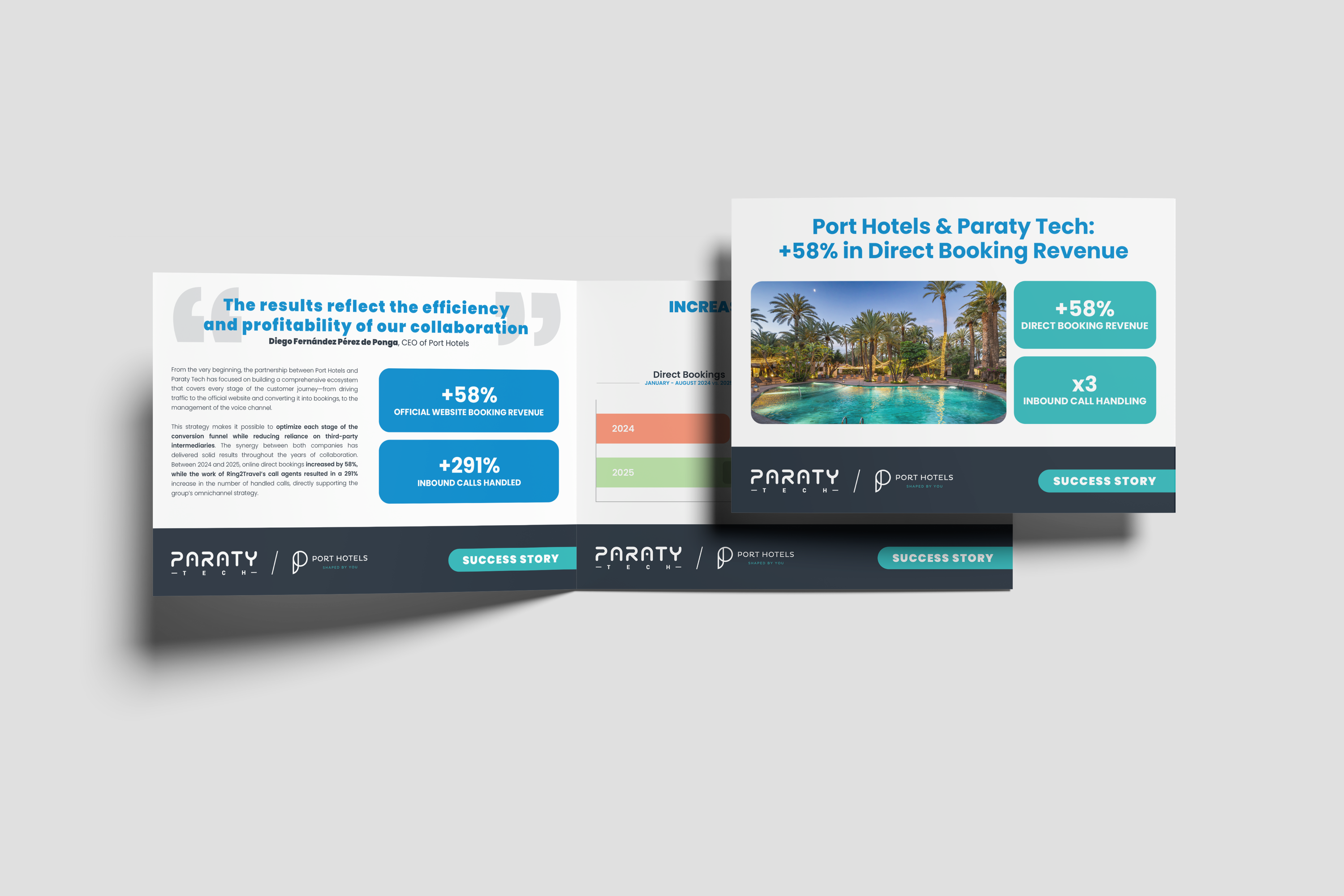After the storm comes... Expedia
Revenue 03/05/2019
Expedia launches its own price match to nullify the effects of Booking's Early Payment Benefit.
When it seemed, finally, that we were beginning to take stock, to understand and assimilate the consequences of the devastating earthquake “Early Payment Benefit”, by Booking.com, and that the arduous work of rebuilding our revenue management strategies, after months of work , were beginning to bear fruit and show the first signs of recovery, everything seems to indicate that our particular distribution seismograph, Price Seeker v3, has once again detected what, by all accounts, seems like a movement of great intensity. This time the tremor comes from Expedia which, as we have seen, has launched a price matching strategy with Booking to nullify the effects of the Early Payment Benefit.
As far as we know, the new functionality that we have found clashes head-on with the interests of its historical antagonist, and it also does so by giving it a taste of its own medicine: through equalization. Just as it happened in February, we have detected it thanks to a Booking disparity, reported by Price Seeker v3 (our rate shopper). Their subsequent analysis resulted in the discovery of another identical disparity, this time by Expedia. Now we know that the second was a direct consequence of the first.
As for his modus operandi, it seems simple. If a hotel experiences a price drop as a result of the Early Payment Benefit, Expedia occasionally matches that price, ensuring at least parity, and offers the user the possibility of paying for the reservation online to enjoy the price improvement. Is it “déjà vu”? No, it's what we call curling the loop.
 Also in this case, it will be the OTA that processes the payment details (the well-known “Expedia Collect” where the hotel receives the net amount and does not know the RRP), and the equalization will be able to be applied to all types of reservations, not only non-refundable. According to our informants, Expedia will agree to deactivate the functionality whenever payment by virtual credit card is disabled in Booking. They couldn't be clearer and more direct.
Also in this case, it will be the OTA that processes the payment details (the well-known “Expedia Collect” where the hotel receives the net amount and does not know the RRP), and the equalization will be able to be applied to all types of reservations, not only non-refundable. According to our informants, Expedia will agree to deactivate the functionality whenever payment by virtual credit card is disabled in Booking. They couldn't be clearer and more direct.
 For the umpteenth time, it is clear that the main players in distribution follow each other very closely, without losing any detail. Every step they take, every decision they make, is designed with the aim of subtracting prominence and weight from their most direct rivals, although along the way they also harm many other secondary members of the cast.
For the umpteenth time, it is clear that the main players in distribution follow each other very closely, without losing any detail. Every step they take, every decision they make, is designed with the aim of subtracting prominence and weight from their most direct rivals, although along the way they also harm many other secondary members of the cast.
Thus, when in February of this year we warned of an unprecedented move by Booking against direct sales, they always argued in their defense that said functionality was not intended to harm the hotelier, but quite the opposite. They justified their implementation by appealing to the responsibility and commitment acquired by their clients to comply with the requirements of the parity score of their platform, a figure calculated based on the price of the hotel in all of its sales channels (including the straight). A measure that, from their point of view, should favor sales. It is clear, but… not through the official website.
The reality is that, behind all that, what really prevailed was the importance, and their intention, of being able to continue offering the best price online, even at the cost of seeing their commissions reduced. And its main competitor, Expedia, which probably also felt identified as a collateral victim of its misdeeds, has not been slow to take note and act accordingly.
As if it were a tasteless replica of that first earthquake, the impact of this recently implemented price equalization policy threatens to once again hit the most disadvantaged, the hoteliers. Still immersed in that usual state of confusion and misinformation, so common after going through a catastrophe of such magnitude, which destroyed a whole series of erroneous assumptions and pre-established principles, there are clear indications that this new phenomenon is a direct consequence of the previous one, and The first investigations yield conclusions that once again shake the foundations of direct selling.
When it seemed, finally, that we were beginning to take stock, to understand and assimilate the consequences of the devastating earthquake “Early Payment Benefit”, by Booking.com, and that the arduous work of rebuilding our revenue management strategies, after months of work , were beginning to bear fruit and show the first signs of recovery, everything seems to indicate that our particular distribution seismograph, Price Seeker v3, has once again detected what, by all accounts, seems like a movement of great intensity. This time the tremor comes from Expedia which, as we have seen, has launched a price matching strategy with Booking to nullify the effects of the Early Payment Benefit.
As far as we know, the new functionality that we have found clashes head-on with the interests of its historical antagonist, and it also does so by giving it a taste of its own medicine: through equalization. Just as it happened in February, we have detected it thanks to a Booking disparity, reported by Price Seeker v3 (our rate shopper). Their subsequent analysis resulted in the discovery of another identical disparity, this time by Expedia. Now we know that the second was a direct consequence of the first.
As for his modus operandi, it seems simple. If a hotel experiences a price drop as a result of the Early Payment Benefit, Expedia occasionally matches that price, ensuring at least parity, and offers the user the possibility of paying for the reservation online to enjoy the price improvement. Is it “déjà vu”? No, it's what we call curling the loop.
 Also in this case, it will be the OTA that processes the payment details (the well-known “Expedia Collect” where the hotel receives the net amount and does not know the RRP), and the equalization will be able to be applied to all types of reservations, not only non-refundable. According to our informants, Expedia will agree to deactivate the functionality whenever payment by virtual credit card is disabled in Booking. They couldn't be clearer and more direct.
Also in this case, it will be the OTA that processes the payment details (the well-known “Expedia Collect” where the hotel receives the net amount and does not know the RRP), and the equalization will be able to be applied to all types of reservations, not only non-refundable. According to our informants, Expedia will agree to deactivate the functionality whenever payment by virtual credit card is disabled in Booking. They couldn't be clearer and more direct.  For the umpteenth time, it is clear that the main players in distribution follow each other very closely, without losing any detail. Every step they take, every decision they make, is designed with the aim of subtracting prominence and weight from their most direct rivals, although along the way they also harm many other secondary members of the cast.
For the umpteenth time, it is clear that the main players in distribution follow each other very closely, without losing any detail. Every step they take, every decision they make, is designed with the aim of subtracting prominence and weight from their most direct rivals, although along the way they also harm many other secondary members of the cast.Thus, when in February of this year we warned of an unprecedented move by Booking against direct sales, they always argued in their defense that said functionality was not intended to harm the hotelier, but quite the opposite. They justified their implementation by appealing to the responsibility and commitment acquired by their clients to comply with the requirements of the parity score of their platform, a figure calculated based on the price of the hotel in all of its sales channels (including the straight). A measure that, from their point of view, should favor sales. It is clear, but… not through the official website.
The reality is that, behind all that, what really prevailed was the importance, and their intention, of being able to continue offering the best price online, even at the cost of seeing their commissions reduced. And its main competitor, Expedia, which probably also felt identified as a collateral victim of its misdeeds, has not been slow to take note and act accordingly.
As if it were a tasteless replica of that first earthquake, the impact of this recently implemented price equalization policy threatens to once again hit the most disadvantaged, the hoteliers. Still immersed in that usual state of confusion and misinformation, so common after going through a catastrophe of such magnitude, which destroyed a whole series of erroneous assumptions and pre-established principles, there are clear indications that this new phenomenon is a direct consequence of the previous one, and The first investigations yield conclusions that once again shake the foundations of direct selling.


















